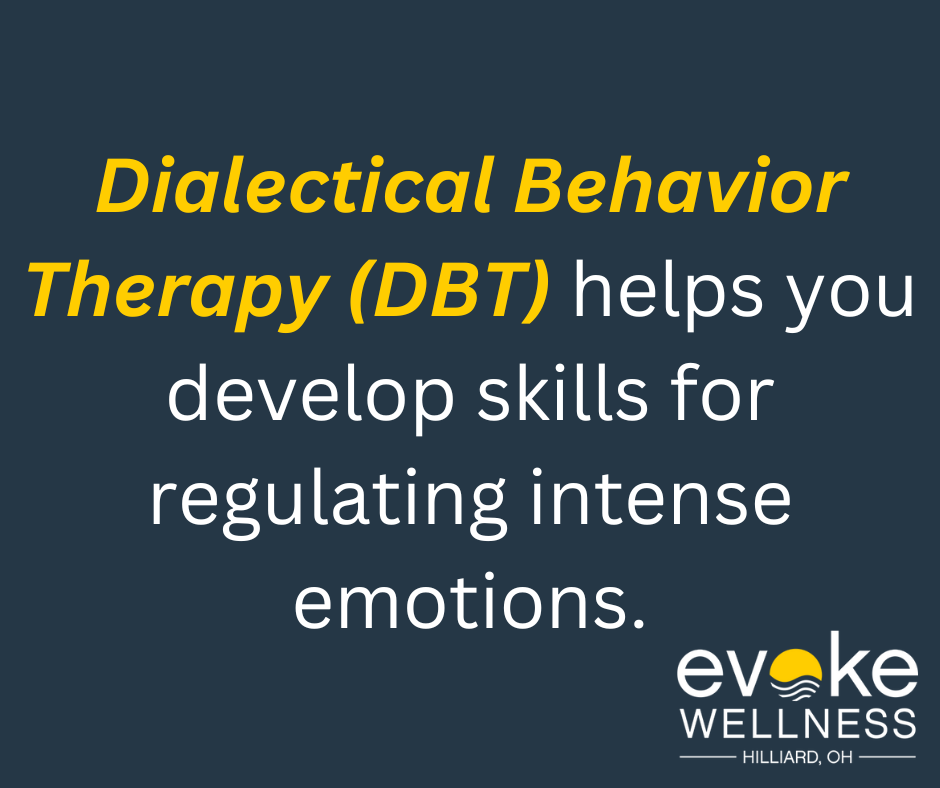Struggling with alcohol addiction? You’re not alone. Dialectical Behavior Therapy (DBT) offers a powerful approach to recovery that can help you regain control of your life. This evidence-based treatment combines cognitive-behavioral techniques with mindfulness practices, providing you with practical skills to manage cravings, regulate emotions, and build a fulfilling, sober lifestyle.
In this article, you’ll discover:
- How DBT works for alcohol recovery
- The importance of alcohol detox and managing withdrawals
- Key DBT skills for maintaining sobriety
Whether you’re considering treatment options or supporting a loved one, understanding DBT can be a game-changer in your journey towards lasting recovery. Let’s explore how this innovative therapy can pave your path to a healthier, alcohol-free future.
Call us at (833) 949-1347 today or reach out online.
Overview of DBT
Dialectical Behavior Therapy (DBT) offers a comprehensive approach to managing alcohol addiction and the underlying issues fueling substance abuse. This evidence-based therapy integrates principles from cognitive behavioral therapy, mindfulness practices, and dialectical philosophy.
Core Principles
- Developing mindfulness skills to stay present and aware
- Regulating intense emotions through specific techniques
- Improving interpersonal effectiveness and communication
- Tolerating distress without resorting to negative behaviors
Therapeutic Process
DBT is typically conducted in a group setting over several months. Participants learn skills through insightful discussions, role-playing exercises, and homework assignments. Individual therapy complements the group process by providing personalized guidance and support.
Comprehensive Approach
Unlike traditional treatments solely focused on abstinence, DBT acknowledges the complexity of addiction. It targets co-occurring mental health issues, unhealthy coping mechanisms, and self-destructive tendencies. This holistic approach empowers individuals to build a life worth living without alcohol.
DBT Core Skills
Mindfulness Skills
- Observe thoughts and feelings without judgment
- Describe experiences using words
- Participate fully in the present moment
Distress Tolerance Skills
- Distract from difficult emotions through activities
- Improve the moment through visualization
- Use self-soothing techniques like breathing
Emotion Regulation Skills
- Identify and label feelings
- Reduce vulnerability to intense emotions
- Increase positive emotional experiences
Interpersonal Effectiveness Skills
- Attend to relationships with others
- Balance priorities through negotiation
- Build mastery and self-respect
Developing these core skills through DBT can help regulate difficult emotions and behaviors around alcohol use. The mindfulness practices aid in recognizing urges to drink, while distress tolerance provides alternatives to drinking. Improving emotional regulation disrupts the cycle fueling alcohol abuse. Finally, interpersonal skills strengthen communication and assertiveness in recovery.
How Does DBT Work?
Skills for Emotional Regulation
Dialectical Behavior Therapy (DBT) helps you develop skills for regulating intense emotions. This is key for overcoming alcohol addiction.
- Mindfulness exercises calm the mind and body
- Distress tolerance techniques prevent impulsive drinking

Changing Unhealthy Behaviors
DBT guides you in analyzing unhealthy behavior patterns driving alcohol abuse. You learn new, positive coping strategies to replace self-destructive habits.
Support and Accountability
Group skills training provides encouragement and accountability. Your DBT therapist helps you stay motivated and apply the skills in daily life.
The combination of emotional regulation, behavioral change, and a supportive therapeutic environment gives you the tools for lasting recovery.
What is DBT Used For?
Emotion Regulation
Dialectical behavior therapy (DBT) is highly effective for helping individuals regulate intense emotions. This therapy teaches mindfulness, distress tolerance, and emotion regulation skills. These allow you to better manage overwhelming feelings like anger, sadness, or anxiety without resorting to alcohol or other unhealthy coping mechanisms.
Improving Relationships
DBT also targets interpersonal effectiveness skills. You’ll learn assertiveness, setting boundaries, and communicating needs in a healthy way. Building these abilities can strengthen relationships strained by alcohol use and improve your social support network.
Alcohol Cravings & Relapse Prevention
A core goal is increasing psychological flexibility to prevent relapse. Through DBT, you’ll identify triggers and develop alternative actions besides drinking. Over time, you’ll build resilience against cravings and high-risk situations that previously led to alcohol use.
Benefits and Effectiveness of DBT for Alcohol Addiction
Comprehensive Treatment
- Targets alcohol use disorder and co-occurring mental health issues
- Focuses on emotion regulation, distress tolerance, mindfulness
- Helps replace unhealthy coping mechanisms like drinking
Proven Effectiveness
- Research shows DBT reduces heavy drinking, alcohol cravings
- Improves quality of life, mental health, social adjustment
- Can be as effective as other evidence-based therapies
Customizable Approach
- Skills training tailored to individual needs and goals
- Combination of individual and group therapy sessions
- Integrates other treatments like medication, family counseling
Long-Term Recovery Support
- Emphasis on relapse prevention skills, building support system
- Clients acquire lifelong coping strategies and self-awareness
- Continual care helps sustain sobriety and emotional wellbeing
DBT provides comprehensive, evidence-based treatment uniquely suited for alcohol use disorder and co-occurring mental health conditions. Its versatile, skills-focused approach empowers lasting recovery.
Frequently Asked Questions About Dialectical Behavior Therapy for Alcohol Detox and Rehab
What is DBT for alcohol addiction?
- DBT combines cognitive behavioral therapy techniques to help modify negative thoughts and behaviors
- Teaches mindfulness and emotional regulation skills to cope with cravings and urges
- Effective for co-occurring disorders like depression, anxiety, trauma
How does it work during detox?
- Focuses on distress tolerance skills to get through uncomfortable withdrawal symptoms
- Radical acceptance and mindfulness help prevent relapse
- Group skills training builds a supportive recovery community
What are the benefits for rehab?
- Develops a “life worth living” by finding meaning beyond addiction
- Improves communication, relationships and emotional intelligence
- Long-term focus on relapse prevention after completing treatment
Dialectical Behavior Therapy provides comprehensive, evidence-based tools to overcome alcohol addiction. Its mindfulness-based approach makes it ideal for the challenges of detox, rehab and long-term sobriety.
Conclusion
In conclusion, Dialectical Behavior Therapy offers a powerful approach for your alcohol recovery journey. By embracing DBT’s core principles, you can:
- Develop mindfulness skills
- Regulate emotions effectively
- Improve interpersonal relationships
- Increase distress tolerance
Remember, alcohol detox and withdrawals are challenging but necessary first steps. DBT equips you with tools to navigate these difficulties and maintain sobriety long-term. As you progress through rehab, continue practicing DBT techniques to reinforce healthy coping mechanisms. Your path to recovery is unique, but with DBT, you have a proven framework to guide you. Stay committed to your goals, be patient with yourself, and celebrate each milestone along the way. You have the power to overcome addiction and create a fulfilling, alcohol-free life.
Begin Your Journey with Evoke Wellness at Hilliard
If you or a loved one is considering treatment, Evoke Wellness at Hilliard invites you to contact us. Our compassionate team is ready to answer your questions, discuss your needs, and help you take the first steps toward recovery. In Hilliard, you’ll find more than just a treatment program – you’ll discover a community dedicated to your wellness and success. Together, let’s embrace the journey to recovery and the promise of a new beginning. Call us at (833) 949-1347 today or reach out online.



